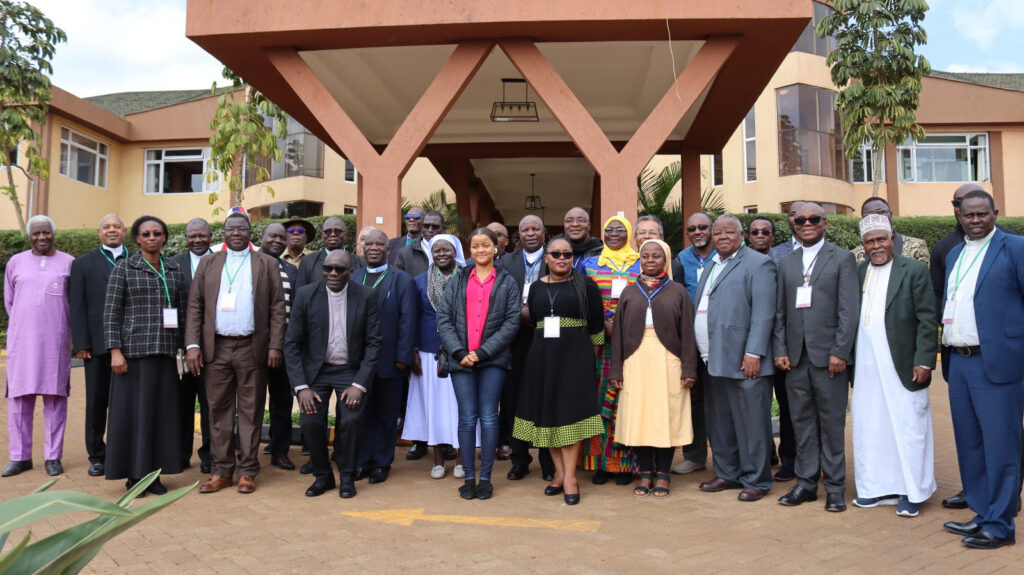KENYA: African Faith Leaders Are Concerned About Unsustainable Debts in the Continent

Faith Leaders. Creddit courtesy photo
Sr. Jecinter Antoinette Okoth, FSSA
African faith leaders at a meeting have raised concerns on the burden of unsustainable debts affecting several countries in the continent and proposed possible solutions on how Africa can emerge from multiple crises for its development.
According to the faith leaders including representatives from the Kenya Conference of Catholic Bishops (KCCB), other Christian faith denominations, Muslims and Indigenous Religions, the crises affecting the continent “are a result of social justice’ issues at the international and domestic levels linked to tax injustice in globalization, trade imbalance between donor and recipient countries and gaps in management of public finance at the domestic level.”
They request Heads of State and finance ministers who will be meeting on various occasions in the next few days and months for a debt reduction process that guarantees “reduction of debt payments…to protect essential development and climate investments,” and at the same time, they call on countries to put in place laws, regulations and practices that enforce responsible lending and borrowing, and ensures departures from them have consequences for the public and private actors involved.”
The collective statement by the faith leaders that was issued Wednesday, August 9, after a two-day meeting in Nairobi, Kenya, further proposes an action of risk sharing between creditors and debtors noting that, “Widening use of climate clauses is a positive, yet only first, step towards embedding risk sharing in the new realities of the global economy.”
The multiple challenges in the continent according to the faith leaders, are interlinked to various crises including the impacts of COVID-19 pandemic, food and nutrition insecurity, climate change, biodiversity loss, water scarcity, fragile health systems, conflicts, terrorism and debts which has eventually led to “intensified poverty, inequality, and governance challenges in the continent and set back progress on attainment of sustainable development goals by 2030.”
In their statement the Faith leaders recalled that some decades ago when African countries were under crushing debt burdens, the Faith communities advocated for “breaking the chain of debt in developing countries,” but 25 years later “The promise remains unfulfilled.”
“We celebrated that world leaders delivered $130 billion in debt relief, which helped advance poverty reduction spending in recipient countries,” reads part of the statement as it continues, “But without addressing the inequities in the international financial system and domestic governance challenges in recipient countries, the crippling burden of unsustainable debts persists.”
The faith leaders approximated that “African countries owe collectively more than $1.1 trillion in external debt and about 25 of them are in deep debt crises.”
Besides, “Debt financing and the inordinate interest rates incurred by the global south in servicing debt affects social sector spending to achieve the global sustainable development and climate goals.”
In their observation the current debt crises are much higher than before the last Jubilee year, hence the need for “large investments to save the planet that sustains life in Africa and elsewhere, during a window that is rapidly closing.”
The faith leaders further proposed other activities to lessen the heavy burden of crises in the continent including: responsible lending and borrowing, access to concessional finance, Rechanneling of Special Drawing Rights and Management of Public finances.


